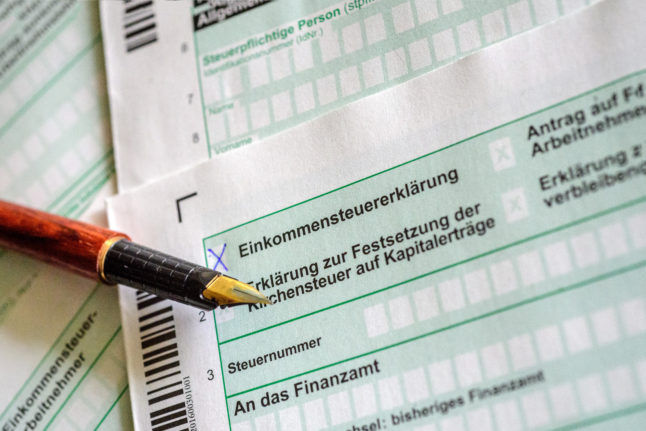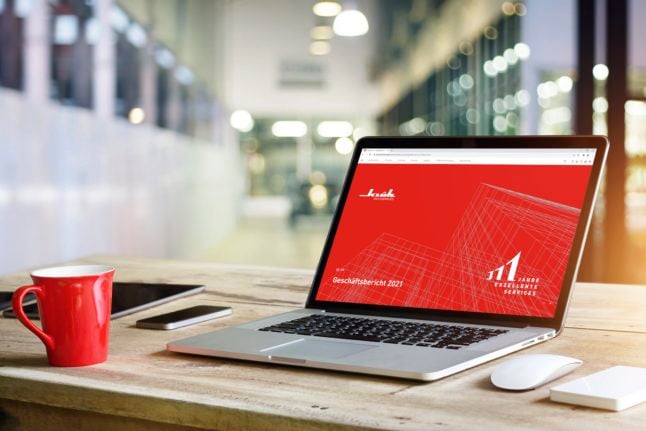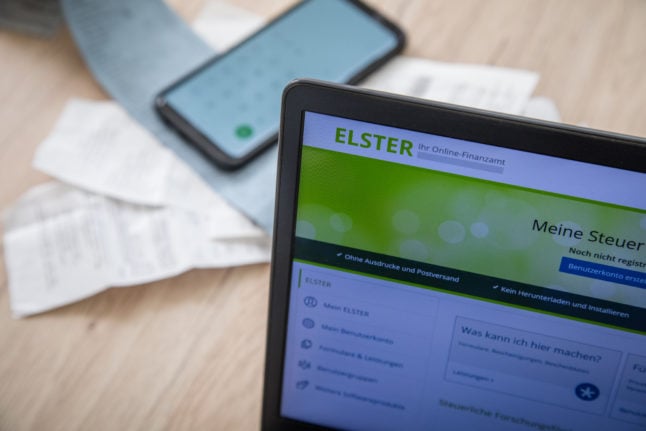One of the trickiest things about moving to a new country is dealing with the bureaucracy – and nothing quite strikes fear into the hearts of foreigners than the German tax system.
If you’re planning on completing your 2021 tax return yourself, you may well be wondering how to get started. What documents do you need, what expenses can you write off, and what’s the best way to file your return? And, perhaps most importantly, do you have to submit it in German?
Here’s our quick guide to submitting a German tax return, along with some tips to take the stress out of the process.
1. Consider whether you need to submit one
As a first step, it’s worth thinking about your situation and whether filing a tax return is mandatory for you or not. People who are self-employed must submit a tax return on a quarterly or yearly basis, depending on their income.
For many full-time employees, however, submitting a tax return isn’t compulsory – but in certain situations it may be.
The general rule is that people who receive more than €410 in additional income per year outside of their primary job should submit a tax return. That includes:
- People who take on freelance work outside of employment or who have more than one employer (including mini-jobs)
- People who have received benefits such as unemployment benefit or child benefit that year
- People who have been on Kurzarbeit, or short-time work
- People who have earned income in a foreign country, i.e. rental income from a property abroad or from a previous employer
- People who’ve received so-called “extraordinary income” such as severance or redundancy payouts
If you’re married and either you or your partner fall into tax class 3 or 5, you will also have to submit a tax return. The same goes for anyone who got divorced and remarried in the same year (or whose ex-partner remarried in the same year).
Of course, even if you don’t have to submit a tax return, it can still be worth doing so. Since tax deductions are taken from your salary automatically, many people find they’ve overpaid as their work and other expenses weren’t taken into account. That may explain why the average rebate on a German tax return is around €1,000 – so it’s definitely worth taking the time if you think you’re due a refund.
READ ALSO: Why millions more German workers have to do a tax return this year
However, as we’ll explain below, the deadline for mandatory and non-mandatory tax returns are different.
2. Get to know the deadlines
Germany has several different tax deadlines.
The earliest deadlines are for people who are submitting a mandatory tax return (i.e. people who fall into any of the aforementioned groups). If you choose to fill in and submit this mandatory declaration yourself, the deadline for the 2021 tax year is October 31st, 2022. However, you’ll have until November 1st if you’re in a state where Reformation Day is a public holiday.
If, on the other hand, you decide to use a tax consultant (Steuerberater), you’ll have some extra leeway. In fact, you won’t have to worry about submitting your 2021 return until August 31st, 2023.
The deadlines for voluntary returns are much more relaxed: you have up to four years to submit a declaration and claim a refund, so the 2021 return can be filed anytime until 2025. This year, meanwhile, you can still submit voluntary returns for 2021, 2020, 2019 and 2018.
READ ALSO: Why people in Germany have longer for their tax return this year

3. Work out the best way to submit it
Now you’re clued up about whether you need to submit a tax return – and by when – it’s time to decide how to file it. As we mentioned, it’s possibly to do all of this through a tax advisor, but for now we’ll focus on the ways you can submit it yourself.
The first way is to do it is through the German government’s own tax platform, Elster. The upside to this is that it’s free, but there are a fair few downsides: the first is that you’ll need to sign up and get a special login key sent to you in the post. The second is that the system can feel complicated and daunting, and that everything is done in German. If you do decide to use Elster regardless, you can find a helpful line-by-line translation and explanation of the different forms here on Toytown Germany.
Another option, which is generally preferred by expats, is to use a third-party tax declaration service. These tend to be more user-friendly and much easier to understand than the official tax forms, and almost all of them are in English as well as German.
There are a huge array of these third-party apps springing up all the time, but a few well-know ones include Taxfix, SteuerGo, smartsteuer and Taxando. Generally, you’ll pay around €30 to submit your tax return using these services, and you’ll only pay if you decide to file the declaration. They also tend to calculate how much of a refund you may be entitled to before you submit.
4. Find the documents you need
So you’ve found the best option for submitting your return – now it’s time to get prepared.
If you don’t want to spend hours rifling through your filing cabinets as the deadline rushes towards you, we suggest gathering all the documents you think you’ll need beforehand.
The first set of documents you’ll need include personal details like your 11-digit tax ID (Steueridentifikationsnummer) and tax number, which you’ll find on your payslip, previous Steuerbescheid (tax confirmation) or in a letter you received from the Finanzamt after registering at your address. You’ll also need to have your bank details, including your IBAN, to hand.

Next you’ll need any proof of income, including:
- Your statement of earnings and tax outgoings for 2021 – known as a Lohnsteuerbescheinigung. You should have received this from your employer at the end of the year or the end of your employment.
- Invoices and/or bank account statements detailing any freelance income you may have received
- Proof of any foreign income you may have received
- Proof of any benefits you may have received
Then you’ll need to gather any receipts (either in paper or online) that show your outgoings on work-related or other expenses. We’ll provide more details of the kinds of things you can write off below.
Freelancers will need to get proof of any health insurance or other social security outgoings from their insurance providers.
Finally, if you’re a parent, you should gather evidence of any child benefit you received and any daycare or educational expenses you’ve incurred.
READ ALSO: EXPLAINED: The tax cuts foreign parents in Germany need to know about
5. Write off your expenses
To simplify the tax process, the tax office automatically gives every employee in Germany the right to write off at least €1,000 in work-related expenses per year. This so-called Werbungskostenpauschale applies whether you actually spent that much or not, and is set to increase to €1,200 from 2022 onwards.
The work-related expenses allowance is often factored into your tax payments automatically throughout the year. That means that for many full-time employees, submitting a tax return may only be worth it if you have expenses totalling more than €1,000.
Here are a few examples of work-related expenses you can write-off so you can consider whether this applies to you:
- The Pendlerpauschale – which is calculated based on the kilometres travelled to work, regardless of your mode of transportation
- Expenses for office and work equipment like printers or computers
- Costs of relocating for work or renting a property closer to your office
- If you have a spare room in your flat that’s used as an office, a certain portion of rental and utilities costs can be written off
- Expenses incurred during business travel, including for transport, accommodation and food
- Additional vocational or professional training expenses
- The home office allowance: a daily rate for people who worked from home during the pandemic

In addition, you can also write off other expenses, including:
- Social security contributions such as health, care and unemployment insurance
- Pension contributions
- Political or charitable donations
- Costs related to a disability, including outgoings for a wheelchair, glasses, etc.
For a more detailed run-down of the savings you can make on your 2021 tax return, see our recent explainers below:
EXPLAINED: How to save money on your taxes in Germany
Everything you need to know about your German tax return in 2022
As with all of our tax and financial summaries, this is a guide only and should not be taken to constitute specific and tailored financial advice. For tax advice which is personalised to your situation, please contact an accountant or tax specialist.




 Please whitelist us to continue reading.
Please whitelist us to continue reading.
Member comments